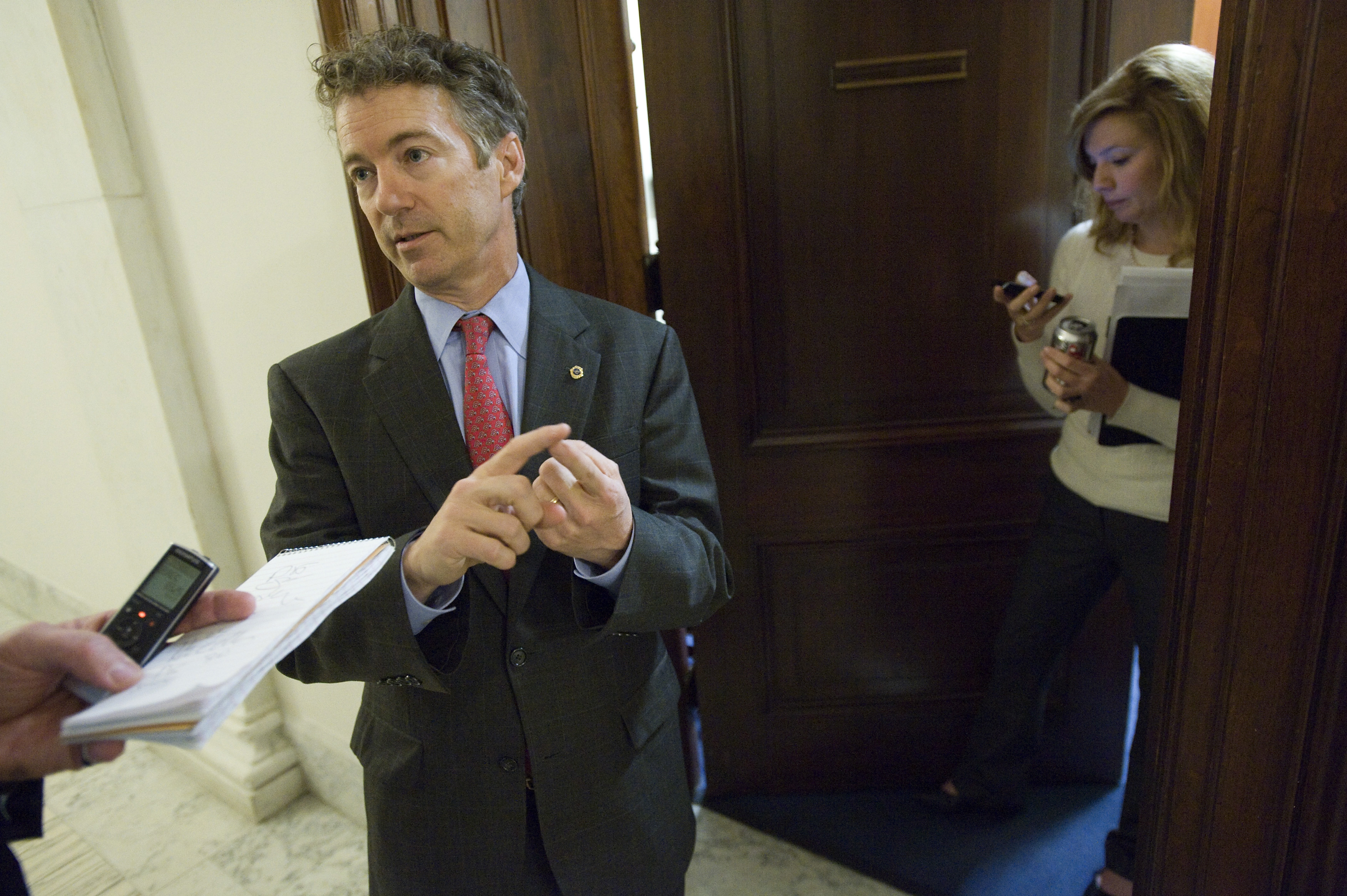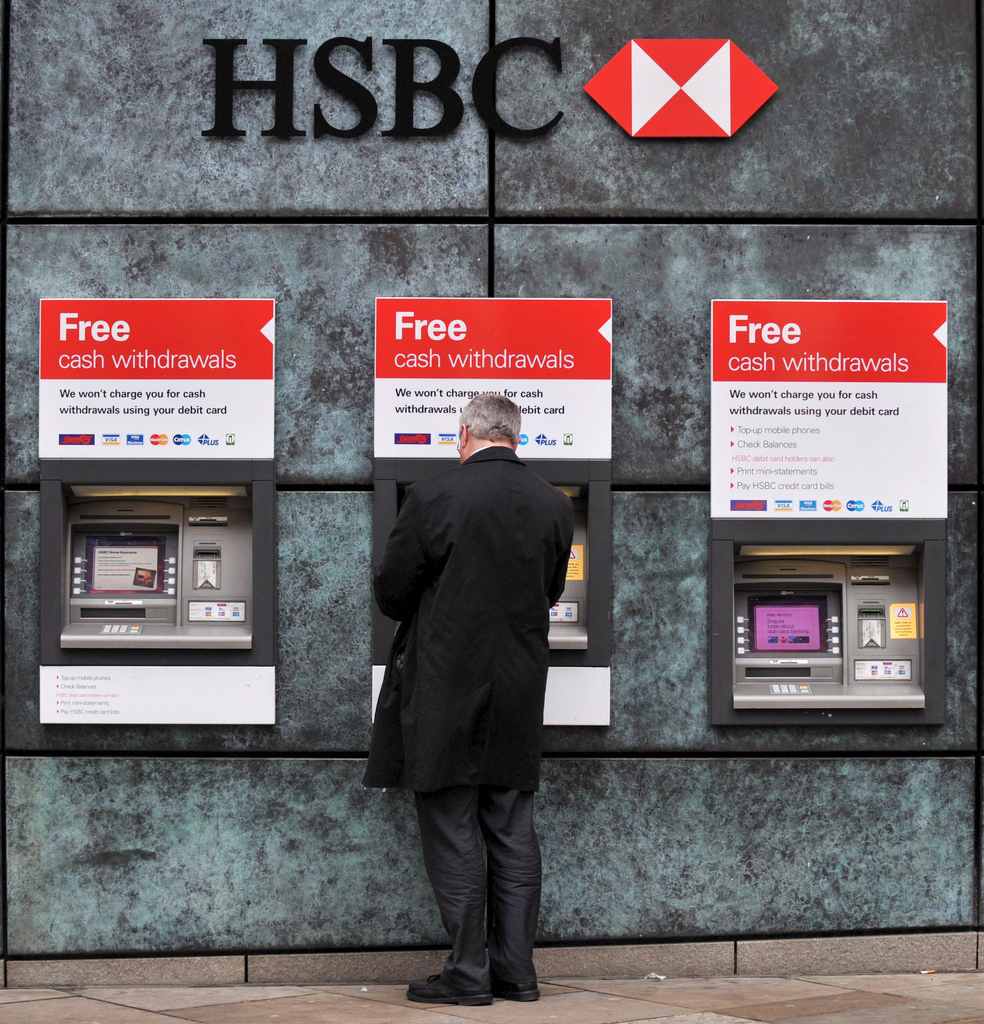US senator digs in heels over Swiss tax deal

The double-taxation agreement between the United States and Switzerland is being held up by one American senator – Rand Paul, son of presidential candidate Ron Paul.
Despite the current log-jam US officials have generally welcomed the revised Swiss-US double taxation accord, approved by the Swiss parliament and government, which makes it easier to hand over information about US citizens with Swiss bank accounts.
Rand Paul, a Republican senator from Kentucky, is the only senator openly opposing the ratification of the revised treaty signed in 2009.
This prevents the text being adopted by consensus, a fast track used by the US Senate for most laws once they have passed the parliamentary committee stage.
Rand Paul has been inspired by his father’s libertarian beliefs and is a member of the conservative Tea Party movement.
He believes the new deal gives too much power to the US Internal Revenue Service (IRS). He thus appears to side with Swiss bank account holders worried about the IRS and is seen as a defender of Swiss banking secrecy.
Paul’s Kentucky office was unavailable for comment. He has nonetheless had contact with the Swiss ambassador to the US, Manuel Sager.
“The ambassador met him at the Senate four months ago and Senator Paul explained the reasons why he was not happy. Basically, he is worried that the deal gives the IRS a too strong position,” said the spokesman of the Swiss embassy in Washington, Norbert Bärlocher.
A matter of principle
Scott Michel, a lawyer representing dozens of customers with UBS and other Swiss banks dealing with the IRS and US Department of Justice, described the blockage as “outrageous”.
But a former Obama administration top finance ministry official told swissinfo.ch anonymously that “there’s nothing easier for a senator than to stop a tax treaty”.
He explained that most senators are not really interested in these kind of questions as they are very technical and of limited interest for their electorate. In light of their passive role, Paul “is a principled man” who wants to limit the role of government, in particular its tax powers, he added.
The senator’s opposition to the agreement is more likely to do with his deep-rooted positions on federal government powers than with Switzerland.
Bärlocher said the US-Swiss tax deal was not the only one stuck at the moment, adding that Paul was also blocking tax accords with Luxembourg and Hungary.
American bias?
Yet the Swiss-US deal has been relatively well received in the US.
The former Obama finance official said the agreement was “very positive for the two countries”.
Donald Beyer, US ambassador to Bern, has also described its approval by the Swiss parliament as a “positive and useful measure”.
Michel, however, believes the accord favours the Americans.
“The treaty weakens the secret banking laws in Switzerland and gives the Americans more room for manoeuvre than before,” he noted.
The revised double-taxation accord allows for administrative assistance to be provided to the US in matters involving grouped requests for information, based on a suspicious “pattern of behaviour” by people or financial institutions for example when they create off-shore companies to avoid paying tax.
US tax authorities will not have to provide names or addresses of suspects in order to receive assistance.
Despite the hold-up the former Obama finance official was optimistic the agreement would soon be signed.
“I am sure that, at the end of the day, the treaty will be passed by the Senate,” he said. “For everyone in Washington, whether Democrat or Republican, it’s about not being perceived as coddling to tax evaders.”
Banking secrecy was enshrined in Swiss law in 1934.
France and Germany launched an attack on Switzerland in October 2008 for allegedly helping foreign tax evaders hide their assets.
The country has been under continuous attack over the issue ever since CDs of stolen bank data were sold to various European countries.
The OECD placed Switzerland on a “grey list” of uncooperative tax havens in April 2009. The Swiss were removed in September after renegotiating several double taxation treaties, but have refused to automatically transfer tax information.
The most damaging tax evasion case against Switzerland involved the activities of UBS bank in the US. In February 2009, UBS was fined $780 million after admitting helping US citizens dodge taxes.
In September 2010, the Swiss government agreed to transfer the details of 4,450 UBS clients to the US – in effect violating Swiss banking secrecy to prevent a ruinous court case for UBS.
Switzerland agreed to ground-breaking withholding tax deals with Germany in August and with Britain in October that preserve banking secrecy. But the European Commission has threatened to take Britain and Germany to court if they implement these deals.
The EC insists on an automatic exchange of information as the basis of tax deals with Switzerland.
French President Nicolas Sarkozy referred to Switzerland as a tax haven in November and vowed that the powerful G20 nations would name and shame tax havens.
The double-taxation accord was signed by the Swiss and US governments in September 2009.
It was cleared by the US Senate’s Foreign Relation s Committee in July 2011, which should have ensured its rapid adoption by unanimous consent by the US Senate. However, opposition by Senator Rand Paul removes unanimity.
It was revised and ratified by the Swiss parliament in March 2012. It still requires ratification by the US Senate.
(Translated from French by Simon Bradley)

In compliance with the JTI standards
More: SWI swissinfo.ch certified by the Journalism Trust Initiative





You can find an overview of ongoing debates with our journalists here. Please join us!
If you want to start a conversation about a topic raised in this article or want to report factual errors, email us at english@swissinfo.ch.